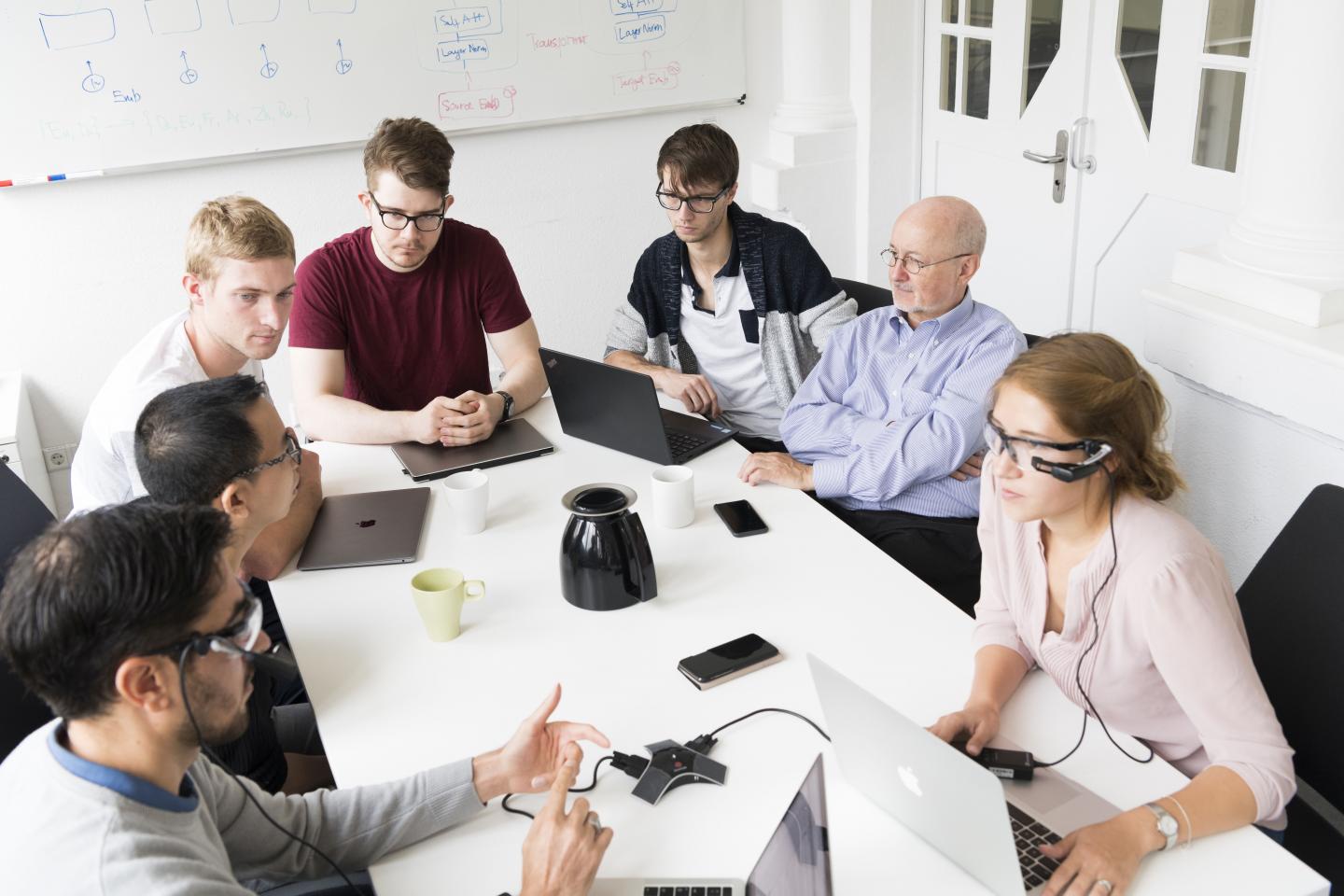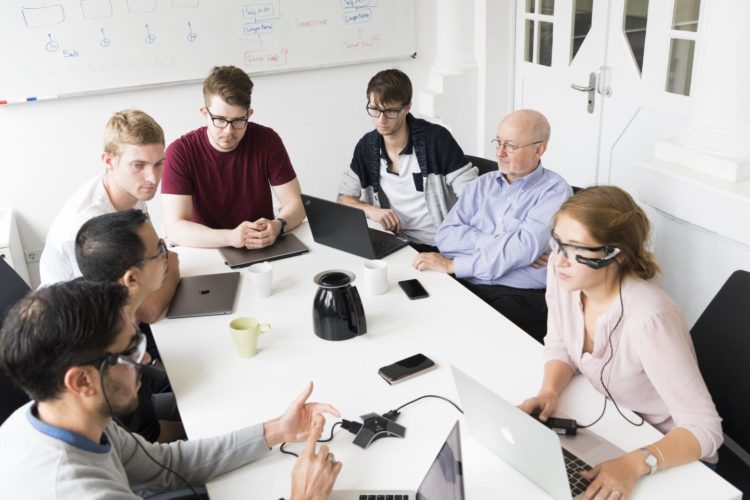Language barriers impede care for refugees — New system improves dialog between patients and therapists in psychiatry and psychotherapy

Credit: Markus Breig, KIT
The success of a psychiatric or psychotherapeutic treatment decisively depends on the quality of communication between the therapist and patient. In case of refugees, this communication is often impeded by language barriers. The Central Institute of Mental Health (ZI) in Mannheim and Karlsruhe Institute of Technology (KIT) now develop a portable, secure, and extendable translation system for diagnostic interviews of refugees from Arabic speaking countries within the BMBF-funded project RELATER.
“In spite of global networking, communication often fails due to different languages,” says Professor Alexander Waibel of KIT’s Institute for Anthropomatics and Robotics. “This also applies to care for, treatment, and integration of refugees who do not speak German.” In case of patients suffering from psychiatric diseases, different languages and cultures may not only lead to misunderstandings, but also to wrong diagnoses in the worst case. Therapists depend on professional interpreters that are often not specialized in this field. As a rule, funding is lacking and interpreters are not present in emergencies. Frequent changes of location make the constant contact between the refugee and the therapist more difficult.
“The RELATER project is to improve communication between refugees and therapists in emergency situations and to enable a correct diagnosis and an adequate, quick treatment,” says the coordinator of the project, Professor Andreas Meyer-Lindenberg, Head of the Executive Board of ZI and Medical Director of the Department of Psychiatry and Psychotherapy. “It is also planned to develop a smartphone app for constant contact with a therapist,” adds Professor Heike Tost, Head of the Systems Neuroscience Psychiatry (SNiP) research group of ZI. With the new smartphone-based translation system, the partners of the project “Removing language barriers in treating refugees” (RELATER) want to remove language barriers, enhance interaction, and improve intercultural competencies in psychiatry and psychotherapy. The project is coordinated by ZI. The internationally established diagnosis instrument M.I.N.I. (Mini-International Neuropsychiatric Interview) will be supported by a self-learning translation system. The machine translator will be used in first diagnostic interviews of refugees, who are suspected to suffer from psychic disorders. Constant optimization of the system is envisaged.
This project is the first to combine psychological and psychiatric expertise with big progress in cross-lingual communication, machine learning, and mobile communication technologies. “The project perfectly demonstrates use of fundamental research findings for the solution of social problems,” Alexander Waibel says. First, the scientists will develop a locally installed, server-based prototype for quick use at larger hospitals with an own infrastructure. Then, the system will be further optimized to a portable, internet-independent device and finally be made available as a smartphone app. Within the framework of a national clinical study with refugees, whose mother tongue is Arabic and who are registered at an initial reception center, the self-learning system will then be evaluated. The mobile platform to be developed within RELATER will also be made available for sustainable interaction between patients and therapists.
The final version of the smartphone app will consider non-verbal, paralinguistic ways of expression, such as gestures, mimics or the volume of a patient. “Symptoms of psychic diseases are strongly dynamic and context-dependent. To capture these symptoms, smartphone-based systems may be used, e.g. e-diaries,” Professor Ulrich Ebner-Priemer, Head of the Mental mHealth Lab of KIT’s Institute of Sports and Sports Science says.
The project started in February 2019 and will be funded by the Federal Ministry of Education and Research (BMBF) with about EUR 3.8 million for a period of four years. KIT’s Institute for Anthropomatics and Robotics (IAR) and the Institute of Sports and Sports Science (IfSS) are involved in the project.
###
About ZI
The Central Institute of Mental Health (ZI) in Mannheim stands for internationally outstanding research and pioneer treatment concepts in psychiatry and psychotherapy, child and youth psychiatry, psychosomatics, and addiction medicine. Its four medical departments ensure psychiatric care for the citizens of Mannheim. Mentally ill people of all ages can trust in most advanced treatment based on the latest international knowledge and research. In the area of psychiatric research, ZI is among the leading institutions in Europe. ZI collaborates closely with the University of Heidelberg and the Medical Faculty Mannheim of Heidelberg University. With more than 1300 employees, ZI is one of Mannheim’s largest employers.
Press contact: Sandra Wiebe, Redakteurin/Pressereferentin, Tel.: +49 721 608-21172, [email protected]
Being „The Research University in the Helmholtz Association”, KIT creates and imparts knowledge for the society and the environment. It is the objective to make significant contributions to the global challenges in the fields of energy, mobility and information. For this, about 9,300 employees cooperate in a broad range of disciplines in natural sciences, engineering sciences, economics, and the humanities and social sciences. KIT prepares its 25,100 students for responsible tasks in society, industry, and science by offering research-based study programs. Innovation efforts at KIT build a bridge between important scientific findings and their application for the benefit of society, economic prosperity, and the preservation of our natural basis of life.
Media Contact
Monika Landgraf
[email protected]
49-721-608-21105
Original Source
https:/





